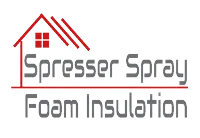SPRESSER SPRAY FOAM INSULATION
Call today for a FREE, no-obligation price estimate!
Welcome to Spresser Spray Foam Insulation
Welcome to Spresser Spray Foam Insulation, your one-stop shop for top-quality insulation solutions. Our company is dedicated to providing efficient and effective insulation solutions that help you save on energy costs while improving your indoor air quality. We pride ourselves on using only the highest quality materials and the latest technology to ensure that your insulation project is done right the first time. With years of experience in the industry, our team of experts is committed to providing exceptional customer service, expert advice, and competitive pricing. Whether you're looking for insulation for your home or business, Spresser Spray Foam Insulation is here to help. Contact us today to learn more about our services!
Our spray foam services:
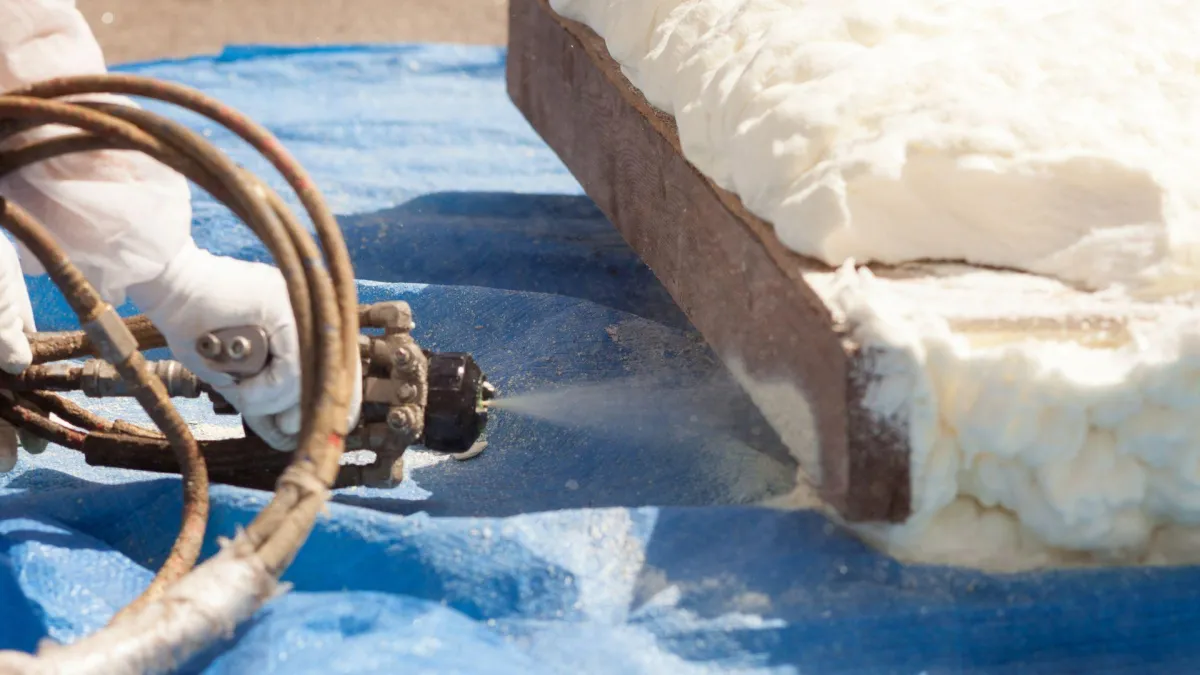
Commercial
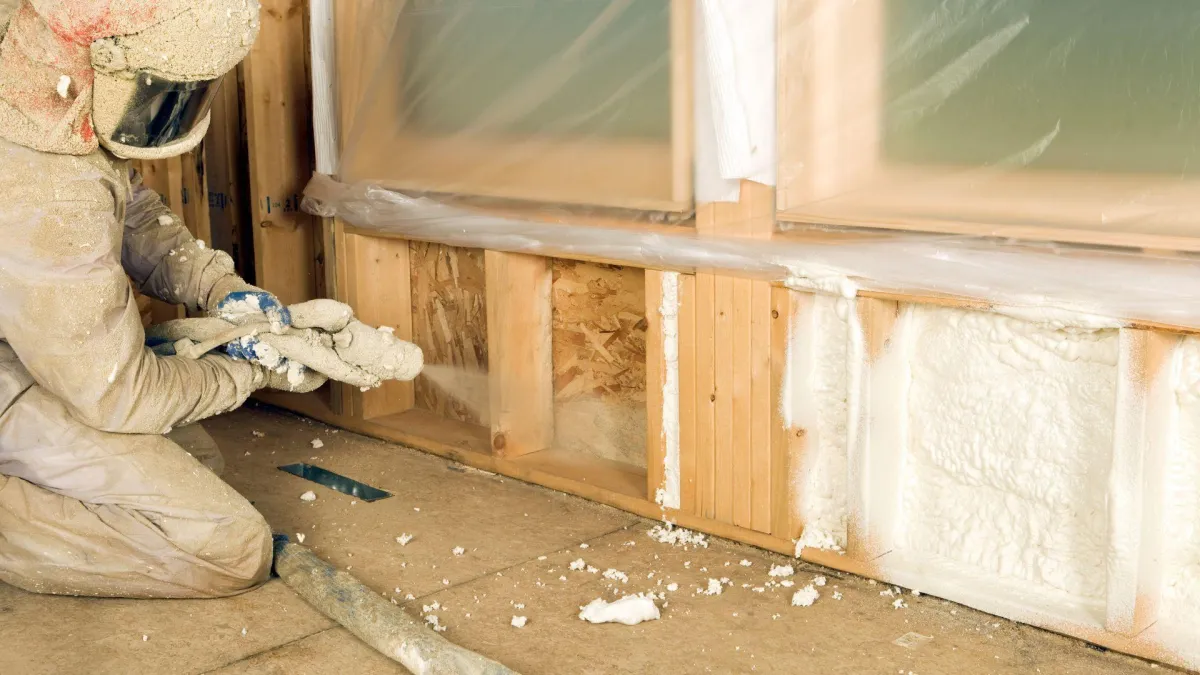
Residential
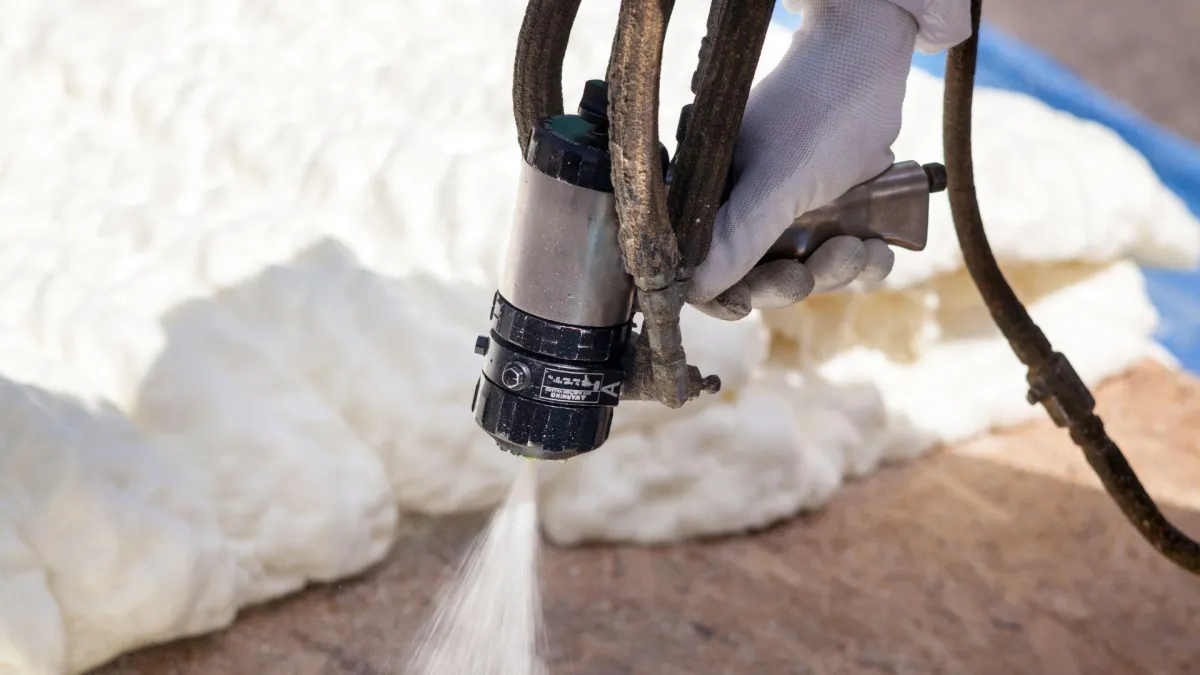
Open Cell
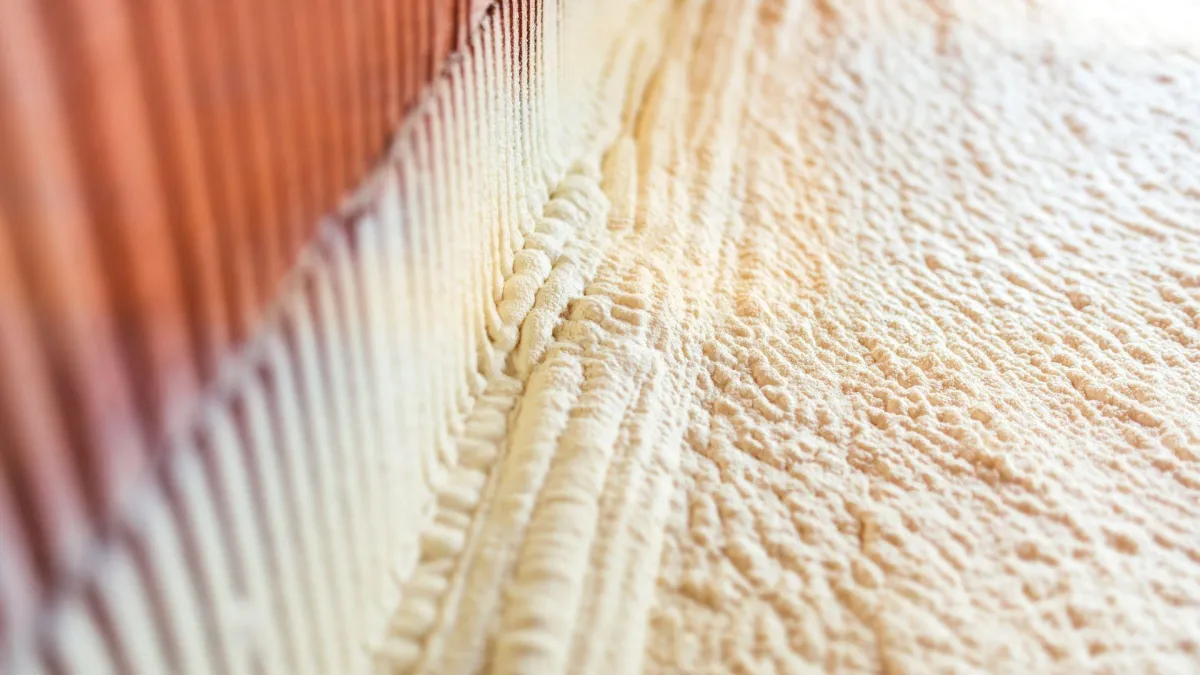
Closed Cell
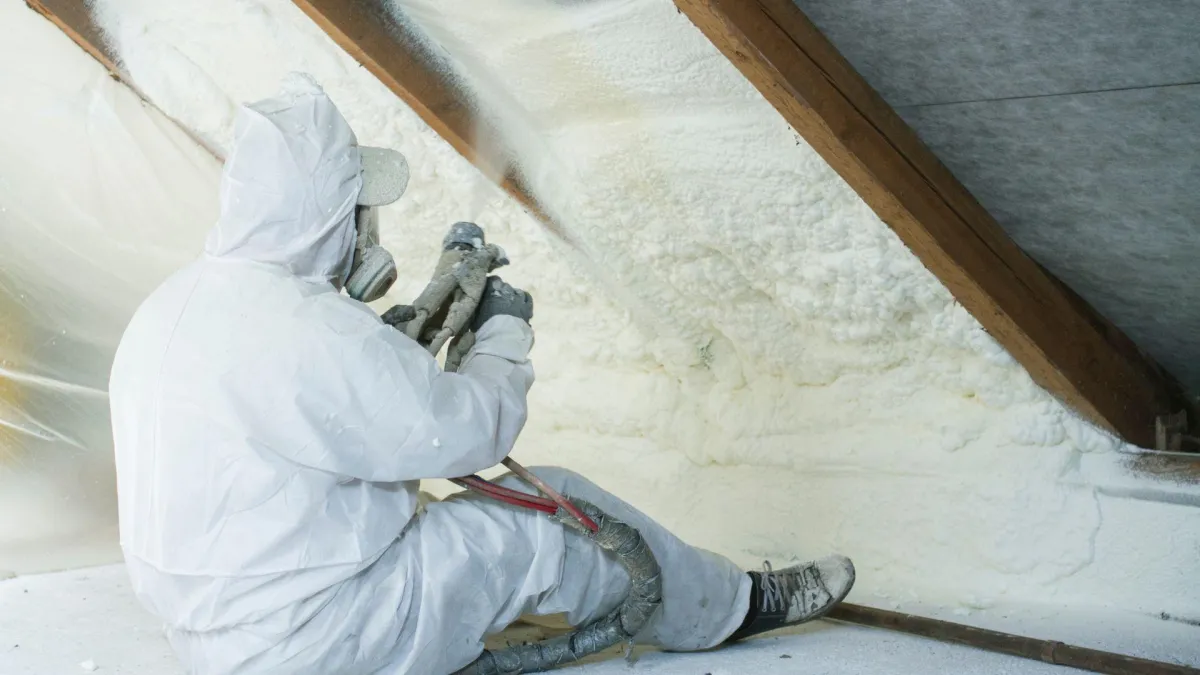
Attic/Crawl Space
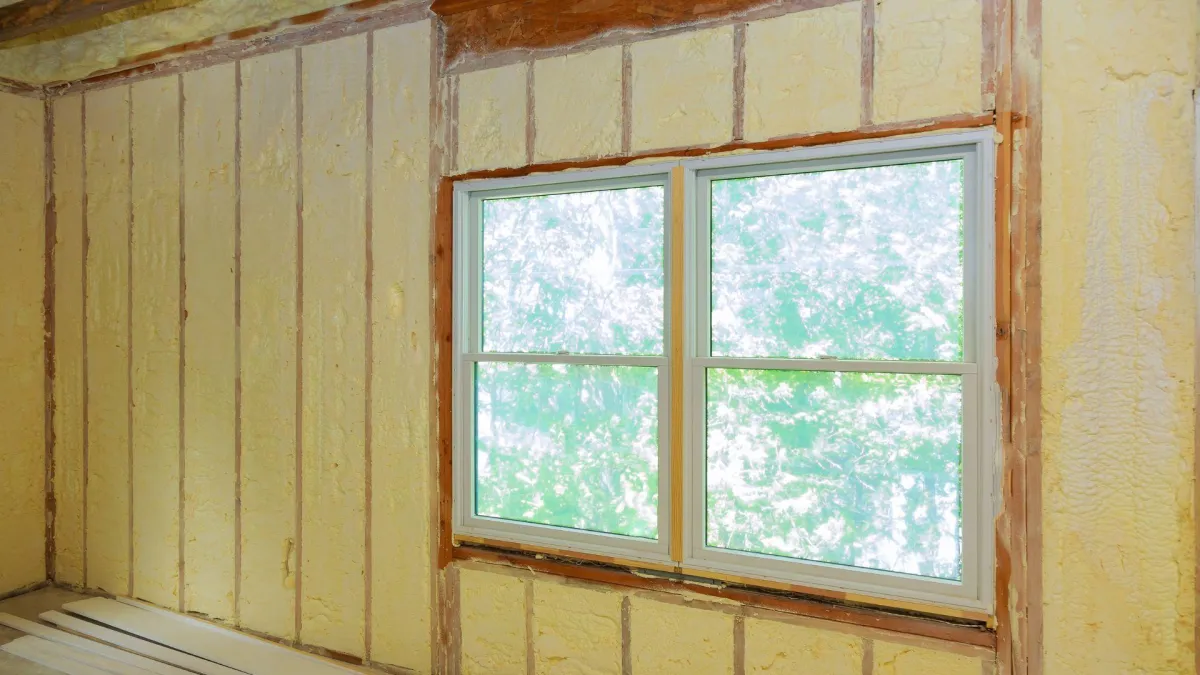
Small Call to Action Headline
Contact Spresser Spray Foam Insulation Today

"Spresser Spray Foam Insulation was responsible for the entire insulation replacement process from beginning to the point of completion. Everything, starting by the first phone call and all the way to the final cleanup and the removal of old insulation, was done with attention, empathy and effectiveness. This team has been highly recommended by us from our side."

"Spresser Spray Foam Insulation
assisted us in removing all of our insulation and replacing the insulation with the closed-cell spray foam. We noticed immediately a change in the temperature of our house and noticed a decrease in our energy bills. I would highly recommend this team to anyone looking for professional and affordable insulation services.

"I would like to use this occasion to express my sincere gratitude to all the staff of Spresser Spray Foam Insulation for their efficient and effective insulation installation they carried out for our specific construction project. The job was completed in an efficient and punctual manner from beginning to the end. I was shocked at how reasonable the cost was."
Experience Superior Insulation with Spresser Spray Foam Solutions
We pride ourselves on being a top choice for homeowners and businesses in Joplin, MO, and surrounding areas.

Experience and Expertise
Our staff comprises individuals with years of hands-on experience, each recognized as an authority in their respective domains. Through continuous training and a commitment to staying abreast of industry advancements, our technicians remain at the forefront of insulation techniques and technologies. This dedication ensures that we consistently deliver outcomes of the highest caliber. Whether tasked with insulating a residential property or a commercial structure, our team approaches each project with meticulous attention to detail and a focus on understanding the unique requirements of our clients. Clients can place their trust in us, confident that we will provide tailored, efficient, and effective solutions that meet and exceed expectations.

Superior Quality Products
Our commitment to excellence drives us to exclusively employ the finest quality products, underpinning the longevity and effectiveness of our insulation solutions. Collaborating with reputable manufacturers, we procure premium-grade materials renowned for their durability and performance. These materials adhere strictly to industry benchmarks for safety and efficiency, ensuring that our insulation solutions not only meet but surpass expectations. By prioritizing the use of superior products, we instill confidence in the enduring quality of our workmanship. Clients can trust that our investments in top-tier materials will yield enduring benefits, enhancing both the comfort and energy efficiency of their properties over an extended lifespan.

Customized Solutions
Whether embarking on a new construction endeavor or seeking to enhance the insulation of an established property, our team engages in close collaboration with clients to comprehensively understand their requirements and aspirations. Through this consultative approach, we develop bespoke plans that not only address your specific needs but also align with your budgetary considerations and objectives. Whether the task involves insulating an attic, encapsulating a crawl space, or any other project, our seasoned professionals possess the versatility and proficiency to handle assignments of varying scales and intricacies. At Spresser, we pride ourselves on delivering client satisfaction, ensuring optimal results for every unique building scenario.

Energy Efficiency
Selecting Spresser Spray Foam Insulation signifies a deliberate choice aimed at maximizing both energy efficiency and financial gains. This cutting-edge insulation solution establishes an unbroken thermal barrier, proficiently sealing off air leaks and thwarting thermal bridging. Consequently, it substantially alleviates the burden on heating and cooling systems, resulting in measurable decreases in energy consumption and related expenses. This method elevates indoor comfort levels, fostering a consistently enjoyable environment throughout the year. By opting for Spresser Spray Foam Insulation, individuals not only secure practical advantages but also actively participate in the pursuit of eco-friendly practices, thereby championing a greener, more sustainable future.

Customer Satisfaction
From the outset of your consultation to the finalization of your project, we are steadfast in delivering an unparalleled experience that surpasses all expectations. Our team, known for its affability and expertise, remains at your disposal throughout the entire process, diligently attending to your inquiries and resolving any concerns that may arise. We take immense pride in our esteemed reputation for reliability, professionalism, and unwavering integrity, which serves as the cornerstone of our operations. In our pursuit of excellence, we pledge to exceed ordinary standards, consistently striving to earn your trust and confidence. At Spresser, your satisfaction isn't just a goal—it's a commitment we uphold with unwavering dedication and a genuine passion for delivering exceptional results.

Environmentally Friendly
Spray foam insulation stands out as a remarkably efficient insulating material, serving to curtail energy consumption and mitigate greenhouse gas emissions. By enhancing the energy efficiency of your property through our insulation solutions, you become an active participant in forging a cleaner, greener future for generations to come. Our dedication to sustainability extends beyond the products we offer. We conscientiously integrate eco-friendly practices into our business operations, striving to minimize waste and reduce our environmental footprint. By adhering to stringent environmental standards and adopting responsible practices, we ensure that our commitment to sustainability permeates every aspect of our endeavors, embodying our unwavering dedication to preserving the planet for future generations.
The Benefits of Spray Foam Insulation For Your Properties in Spresser
Discover the numerous advantages that spray foam insulation brings to your properties in Spresser. This innovative insulation solution offers a range of benefits that contribute to enhanced comfort, energy efficiency, and cost savings.
How does spray foam insulation function as a barrier against heat and cold in properties located in Spresser and Joplin, MO?
In the dynamic climates of Spresser and Joplin, MO, spray foam insulation acts as a reliable shield against both heat and cold. This insulation method creates a seamless barrier that effectively prevents external temperature fluctuations from affecting indoor comfort. During hot summers, the insulation forms a barrier that resists the infiltration of heat, keeping interiors cooler. In colder months, it functions similarly by inhibiting cold air from entering, maintaining a cozy indoor environment. The key lies in its airtight seal, which minimizes drafts and air leakage that contribute to temperature imbalances. By providing a consistent and well-regulated indoor atmosphere, spray foam insulation reduces the strain on heating and cooling systems, ultimately leading to energy savings. Spresser Spray Foam Insulation ensures that properties in Spresser and Joplin remain comfortable year-round, regardless of the weather outside.
The benefits of spray foam insulation provide for stabilizing indoor temperatures in Spresser and Joplin, MO's changing climates.
Spray foam insulation plays a pivotal role in enhancing energy efficiency and reducing utility costs for properties in Spresser and Joplin, MO. This insulation method creates an airtight seal that effectively prevents air leakage and drafts, both of which are common culprits of energy wastage. By sealing every nook and cranny, the insulation ensures that conditioned air remains indoors, minimizing the need for continuous heating or cooling. This translates into reduced energy consumption, ultimately reflected in lower utility bills. Furthermore, its thermal barrier properties maintain consistent indoor temperatures, lessening the strain on HVAC systems. As a result, spray foam insulation not only increases energy efficiency but also extends the lifespan of heating and cooling equipment. With Spresser Spray Foam Insulation, properties in Spresser and Joplin experience a significant boost in energy performance and financial savings.
Spray foam insulation helps reduce drafts, air leakage, and moisture in Spresser and Joplin, MO's unique environment.
In the distinct climate of Spresser and Joplin, MO, spray foam insulation stands as a reliable ally in minimizing drafts, air leakage, and moisture infiltration. Its exceptional ability to conform to any space ensures that even the smallest gaps and crevices are tightly sealed, preventing the intrusion of external elements. This not only curtails drafts and air leakage, which can compromise indoor comfort, but also deters the entry of moisture that can lead to mold and mildew growth. In an environment characterized by varying weather conditions, this insulation method serves as a robust defense against the elements. By creating an airtight barrier, spray foam insulation contributes to a healthier and more comfortable indoor atmosphere. Spresser Spray Foam Insulation offers properties in Spresser and Joplin a comprehensive solution to combat drafts, maintain indoor air quality, and ensure a secure and snug interior environment.
Do homes and businesses in Spresser and Joplin, MO experience added benefits like enhanced sound insulation and reduced allergens from spray foam insulation?
Absolutely, spray foam insulation extends beyond its primary benefits in Spresser and Joplin, MO, offering valuable additional advantages. Enhanced sound insulation is one such advantage, as the insulation's dense composition absorbs and reduces sound transmission, contributing to a quieter indoor environment. This can be especially beneficial for properties located in busy or noisy areas. Furthermore, spray foam insulation's airtight seal acts as a barrier against allergens and pollutants, preventing their entry and improving indoor air quality. This is particularly advantageous for individuals who suffer from allergies or respiratory issues. By fostering a healthier and more serene living or working environment, spray foam insulation not only addresses temperature concerns but also elevates overall well-being. Spresser Spray Foam Insulation ensures that properties in Spresser and Joplin experience enhanced comfort, reduced allergens, and a quieter atmosphere, all thanks to the multifaceted benefits of spray foam insulation.
Spresser Spray Foam Insulation General Questions
Hi there! Have some questions about our company? Find the answers below.
What are the benefits of Spresser Spray Foam Insulation?
Discover the myriad advantages of choosing Spresser Spray Foam Insulation for your property in Joplin, MO. Our innovative insulation solution offers a host of benefits that set it apart from traditional insulation methods. With its ability to form a seamless thermal barrier, Spresser Spray Foam Insulation effectively seals off air leaks and prevents thermal bridging, leading to reduced energy consumption and lower utility bills. Additionally, this insulation enhances indoor comfort levels by maintaining consistent temperatures throughout the year. Moreover, Spresser Spray Foam Insulation is environmentally friendly, contributing to a greener footprint and aligning with sustainability goals. For both residential and commercial properties, Spresser Insulation offers efficient installation processes, providing prompt and reliable service. Choose Spresser Spray Foam Insulation today for unparalleled energy efficiency, cost savings, and environmental responsibility. Contact us at (417) 525-4915 to learn more about how we can transform your property.
How does Spresser Insulation compare to traditional insulation methods?
When comparing Spresser Insulation to traditional insulation methods, the differences are striking. Unlike conventional insulation materials like fiberglass or cellulose, Spresser Spray Foam Insulation offers superior performance and efficiency. While traditional insulation may leave gaps or allow air leakage, Spresser Insulation forms a continuous thermal barrier, effectively sealing off any potential points of energy loss. This seamless insulation not only minimizes heat transfer but also prevents thermal bridging, resulting in significantly reduced energy consumption and lower utility bills. Spresser Insulation provides better moisture resistance, preventing mold and mildew growth, which can be common issues with traditional insulation materials. Additionally, Spresser Insulation is known for its durability, lasting longer and requiring less maintenance than traditional options.For those seeking the most efficient and effective insulation solution for their property in Joplin, MO, Spresser Spray Foam Insulation stands as the clear choice. Contact us at (417) 525-4915 to learn more about the benefits of Spresser Insulation and schedule an installation today.
Can Spresser Spray Foam Insulation help reduce energy bills?
Absolutely, Spresser Spray Foam Insulation is an excellent investment for reducing energy bills. Its exceptional thermal performance creates a seamless barrier that effectively seals off air leaks and minimizes thermal bridging. By preventing heat transfer, Spresser Insulation significantly reduces the workload on heating and cooling systems, resulting in lower energy consumption and ultimately leading to substantial savings on utility bills. The superior insulation properties of Spresser Spray Foam Insulation ensure that indoor temperatures remain consistent throughout the year, reducing the need for constant heating or cooling adjustments. This not only enhances comfort but also contributes to further energy savings. For homeowners and businesses in Joplin, MO, looking to cut down on energy costs and improve efficiency, Spresser Spray Foam Insulation is the solution. Contact us at (417) 525-4915 to learn more about how Spresser Insulation can benefit your property and schedule an installation today.
Is Spresser Insulation suitable for both residential and commercial buildings?
Yes, Spresser Insulation is ideal for both residential and commercial buildings in Joplin, MO. Whether you're insulating a cozy home or a sprawling office space, Spresser Spray Foam Insulation offers versatile solutions tailored to your specific needs. Our insulation experts are equipped to handle projects of all sizes and complexities, ensuring efficient and effective results regardless of the building type.For residential properties, Spresser Insulation enhances energy efficiency, improves indoor comfort, and reduces noise transmission, creating a more pleasant living environment for occupants. Similarly, in commercial buildings, Spresser Insulation helps lower energy bills, maintains comfortable indoor temperatures, and enhances overall building performance.Whether you're a homeowner or a business owner in Joplin, MO, seeking top-quality insulation solutions, Spresser Spray Foam Insulation is your trusted partner. Contact us at (417) 525-4915 to learn more about our services and schedule an installation today.
How long does it take to install Spresser Spray Foam Insulation?
The installation timeframe for Spresser Spray Foam Insulation depends on various factors such as the size of the property, the complexity of the project, and the specific requirements of the client. Generally, the installation process is efficient and minimally disruptive, with our experienced technicians working diligently to complete the job in a timely manner.For smaller residential projects, installation may take just a few hours to a day, while larger residential properties or commercial buildings may require a few days for completion. Rest assured, our team prioritizes efficiency without compromising on the quality of workmanship.To get a more accurate estimate of the installation timeframe for your project in Joplin, MO, we recommend reaching out to us directly at (417) 525-4915. Our knowledgeable staff will be happy to discuss your needs and provide you with detailed information tailored to your specific situation.
What sets Spresser Spray Foam Insulation apart from other insulation options?
What distinguishes Spresser Spray Foam Insulation from other insulation options is its unparalleled performance and versatility. Unlike traditional insulation materials like fiberglass or cellulose, Spresser Insulation forms a seamless thermal barrier that effectively seals off air leaks and prevents thermal bridging. This results in superior energy efficiency, reduced utility bills, and enhanced indoor comfort. Spresser Spray Foam Insulation offers exceptional moisture resistance, preventing mold and mildew growth, which can be common issues with other insulation materials. Its durability ensures long-lasting performance, requiring minimal maintenance over time. Whether for residential or commercial properties in Joplin, MO, Spresser Spray Foam Insulation stands as the premier choice for those seeking optimal insulation solutions. Contact us at (417) 525-4915 to learn more about the benefits of Spresser Insulation and schedule an installation today.
SPEAK TO A TEAM MEMBER TODAY
Copyrights 2025 | Spresser Spray Foam Insulation | Website Managed by Leads By Vinny
